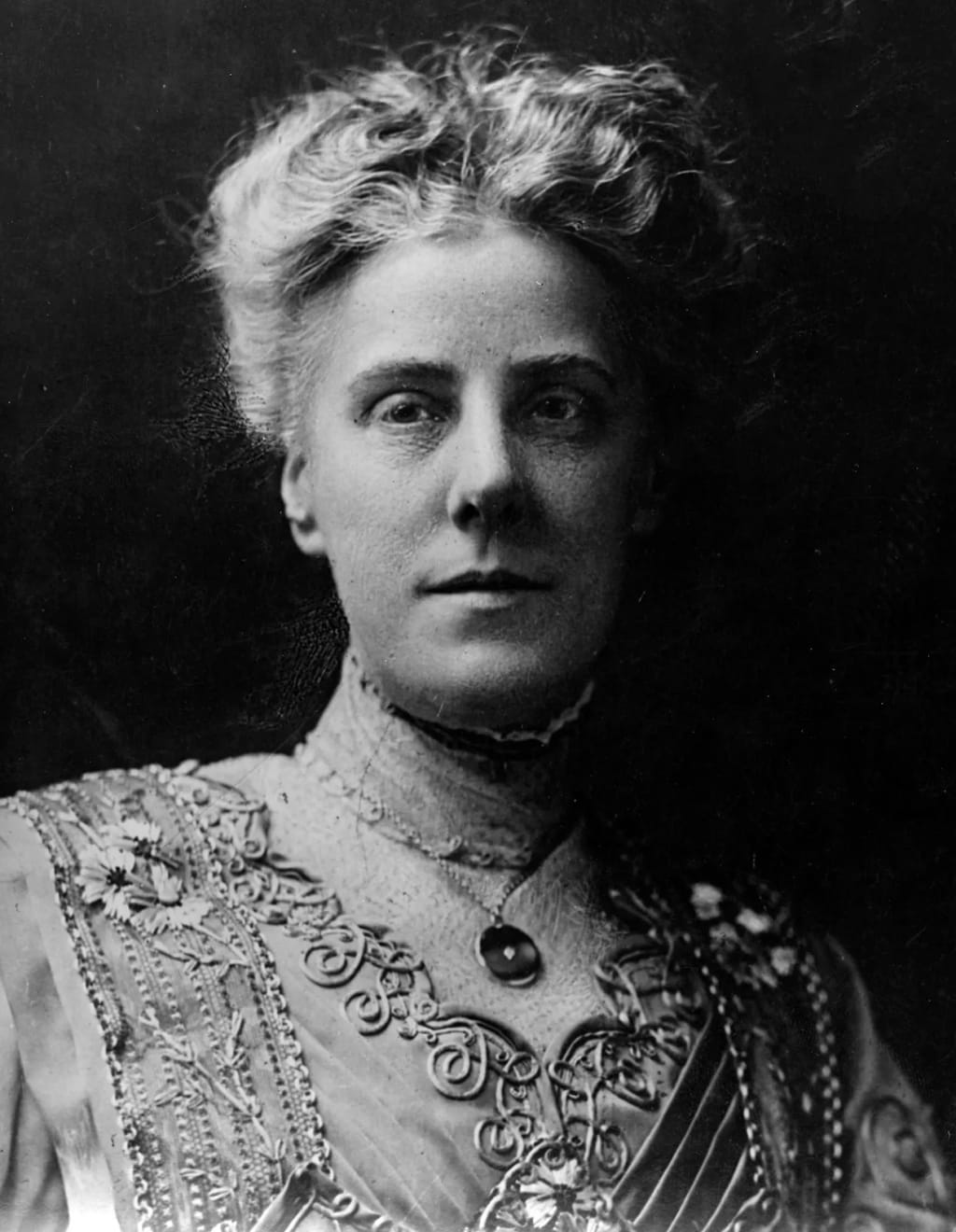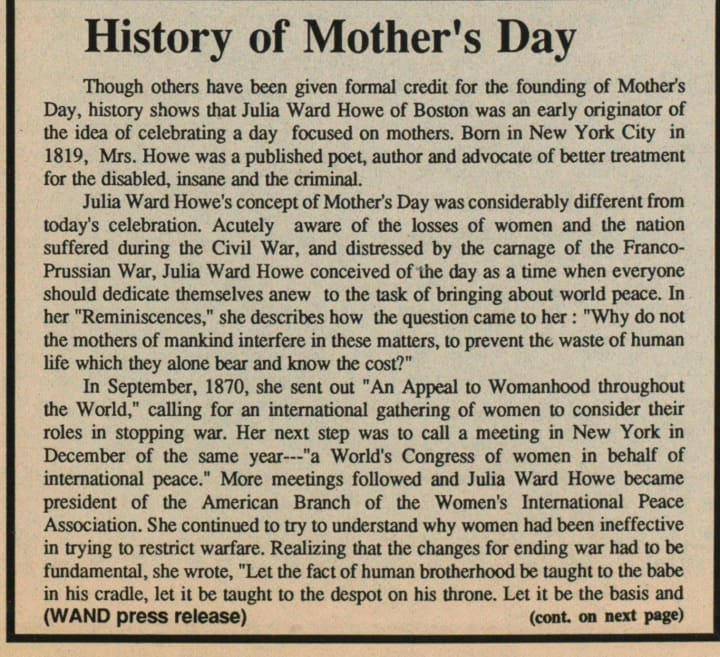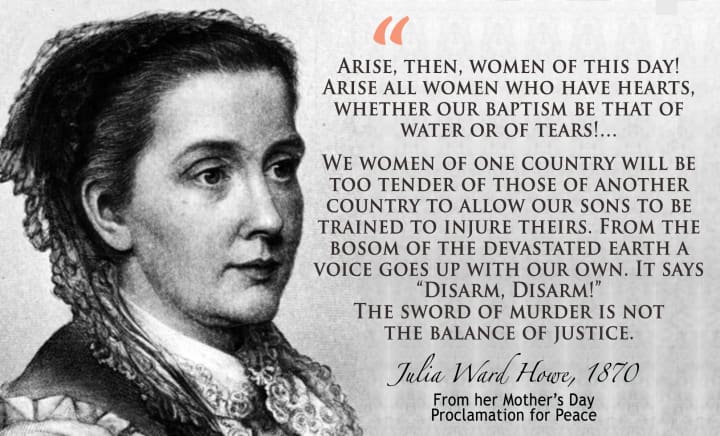The History of Mother’s Day
A historical perspective on the origins of the holiday and its founder(s)

Mother’s Day, as one would expect, is a holiday that was created to honor mothers. Though very few know the actual origins of the holiday, or that it is celebrated in countries throughout the world.
The exact history, however, is somewhat debatable. The most commonly held historical account globally is the first one that follows, however, the second is also compelling and makes a good argument for where Mrs. Jarvis got the idea.
In its modern form, the holiday originated in the United States. It is observed on the second Sunday in May, and while many other countries also celebrate the holiday on this date, some mark the observance at other times of the year.
During the Middle Ages, the custom developed of allowing those who had moved away to visit their home parishes and their mothers on ‘Laetare Sunday’, the fourth Sunday of Lent. This became known as ‘Mothering Sunday’ in Britain, where it continued into modern times, although it has largely been replaced by Mother’s Day.
This year, 2022, Mother’s Day will be celebrated on Sunday, May 8.
The most common belief for the origin of the ritual has its roots in Anna Jarvis of Philadelphia, whose mother had organized women’s groups to promote friendship and health. It is widely believed that she organized the first Mother’s Day on May 12, 1907. In it, she held a memorial service at her late mother’s church in Grafton, West Virginia. Within five years virtually every state was observing the day and in 1914, President Woodrow Wilson made the second Sunday in May a national holiday and officially labeled it “Mother’s Day’.
Although Jarvis had promoted the wearing of a white carnation as a tribute to one’s mother, the custom developed of wearing a red or pink carnation to represent a living mother or a white carnation for a mother who was deceased. Over time the day was expanded to include others, such as grandmothers and aunts, who played mothering roles.
However, what was initially designed to be a day of honor, slowly began to become associated with the sending of cards and the giving of gifts as most modern holidays tend to end up commercialized.
In protest against its commercialization, Jarvis spent the last years of her life trying to abolish the holiday she had brought into being.
Festivals honoring mothers and mother goddesses date to ancient times. The Phrygians held a festival for Cybele, the Great Mother of the Gods, as did the Greeks for the goddess Rhea. Likewise, the Romans adapted the practice to their own pantheon. Some countries have continued to observe ancient festivals; for example, Durga-puja, honoring the goddess Durga, remains an important festival in India.
That being said, there is also another very compelling possible origin of the modern Mother’s Day holiday.


As you can see after reading each of the clippings provided, Ms.Ward-Howe clearly penned her Mother’s Day declaration a full 37 years before Mrs. Jarvis, yet the official historical records give credit for founding the holiday to Jarvis.
It is possible that this is because the idea didn’t catch on and become broadly accepted or practiced until after Jarvis revitalized the concept in 1907, prompting then-President Woodrow Wilson to make the date an official holiday in 2014.
It is the opinion of this writer, that no matter who originated the idea, the amazing work of both of these women should continuously be recognized throughout time as the pioneers of Mother’s Day.
After all, where would any of us be without our mothers?
About the Creator
Kurt Dillon
Kurt Dillon is an Author, Writer, Educator, & Chef with Master's Degrees in English/Journalism and Clinical Psychology from Columbia University. He has worked as a writer and as an Associate Professor of English for almost 30 years.






Comments
There are no comments for this story
Be the first to respond and start the conversation.